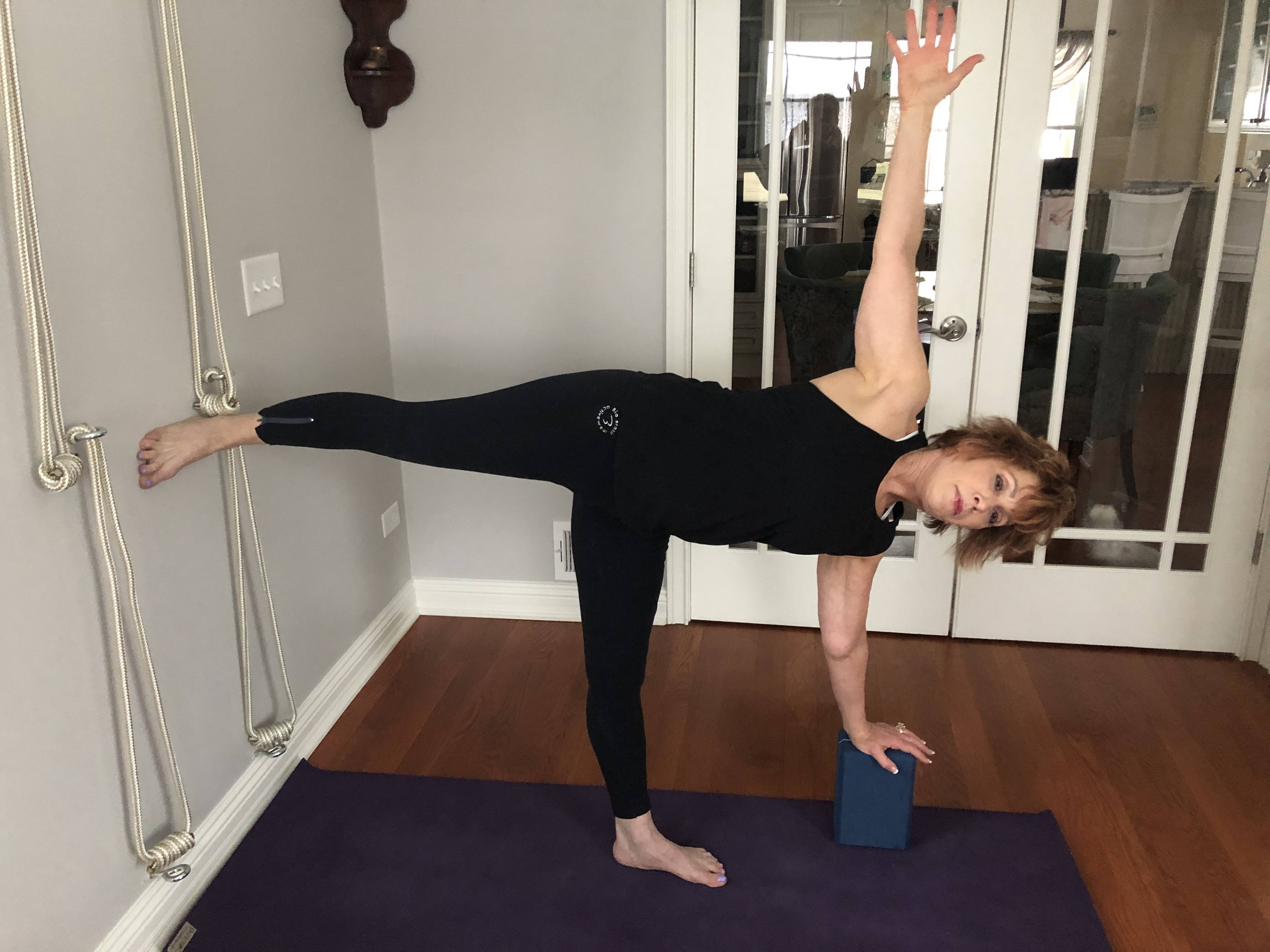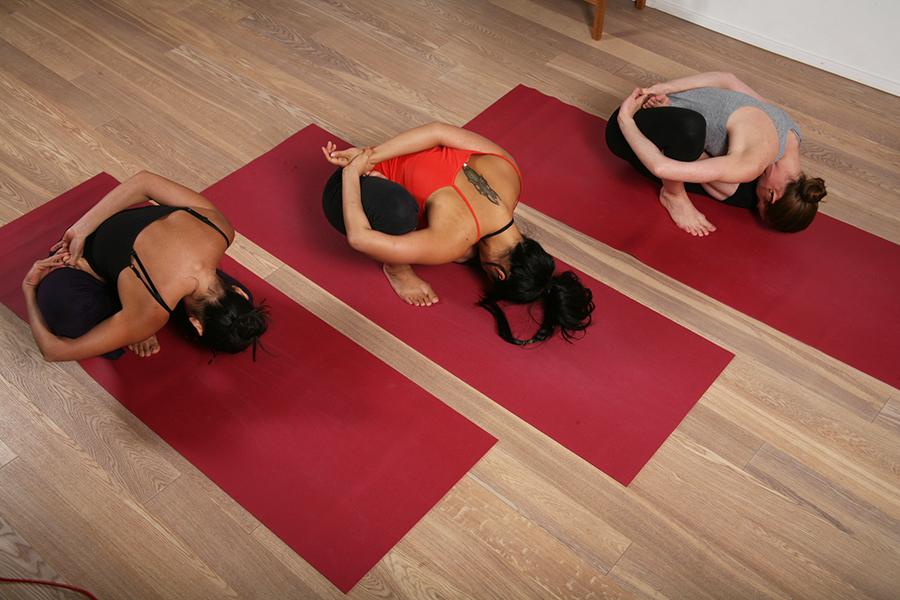
Yoga twists have many benefits beyond their physical appearance. They are also good for your mind, helping you to concentrate on your breathing and the centreing process. The most common twist involves compressing the organs and pushing blood full of toxic by-products, toxins, and other metabolic waste out. When the twist is released, fresh blood flows in, carrying oxygen and building blocks for tissue healing. Performing yoga twists can improve circulation and improve your body's ability to stay centered during any activity.
Maintaining your balance is key when performing a twist. The main goal of the pose is to keep your torso as straight as possible and avoid rounding your back. Relax by practicing a seated bend with your shoulders elevated. To do a supine bend, your spine must be maintained at its natural length and curve. Deep breathing is key to a balanced yoga posture.

Twisting is good for flexibility and your spine. For a healthy spine, a healthy mind and body is crucial. Adding more blood flow helps your muscles absorb nutrients and heal more efficiently. When you are doing yoga, be mindful of your alignment. Having the proper hip alignment is crucial to achieving the correct alignment. Yoga instructors should be able to explain the correct technique and proper twisting techniques to you.
A good way to learn how to twist is to practice correctly. Remember that twists are asymmetrical and require proper body alignment. A seated twist is best performed with your sitting bones grounded in the floor. If your lower back is rounded, you can also use a blanket or block to support your spine. The twist should be initiated from your lower spine. This will stop the neck doing all the work and make the twist less obvious.
It is very easy to twist for a beginner student. However, it can sometimes be uncomfortable. It is normal to feel pain at first of a yoga session. In this case, it's important to start slowly and gradually. When you're learning the basics of yoga, you'll soon find that you're developing a stronger core and improving your flexibility. As you gain experience, you'll be capable of performing twists to improve your posture.

Before moving to more advanced twists, you should first practice seated and standing versions of yoga poses to create space in your torso and spine. As you progress, you can extend your tailbone and crown to the ceiling. Before you move onto the next pose, ensure that your alignment is correct. While you are practicing standing or seated, be aware how your pelvis is aligned.
FAQ
Is mental well-being more important than working?
Working is stressful and mental health is crucial. You can relax if you are feeling stressed at work by going out with your friends, walking outside or listening to music.
You should speak to your boss if you are struggling with relaxation. You may find solutions to your stress through them.
It is also important to take care of your health. It's important to eat right, exercise regularly, take enough rest, and get plenty of sleep.
What is Positive Psychology? Why is it Important?
Positive psychology examines the aspects of positive psychology that can make us feel better about ourselves. These include happiness, optimism. gratitude, hope. kindness. compassion. forgiveness. courage. curiosity. empathy. spirituality. Positive psychology's goal is to improve self-esteem, happiness, health, and wisdom.
There are two types, trait positive psychology and positive process psychology. Trait positive psychology studies the natural behavior of people. Positive psychology research explains how certain strategies can be used to reach specific goals.
What can psychologists tell us about mental health?
Psychologists believe that mental wellness is an essential component of human development. Psychologists also believe mental health is about more than having no mental illnesses. It's also about being mentally fit.
Psychologists have different views regarding mental health. Some psychologists believe mental health is unnecessary because so many people don't have any mental illnesses. Others believe that mental health and functioning properly are essential.
How can I avoid mental health issues in the future?
It's not always easy to prevent mental illness. Here are some things to keep in your mind.
-
Don't drink alcohol. Drinking alcohol can cause depression and affect your mood.
-
Avoid drugs. Avoid using drugs.
-
Get enough sleep. Sleep deprivation can make you feel anxious and depressed.
-
Exercise regularly. Exercise makes you feel happy and releases endorphins.
-
Eat healthy foods. You can feel tired and unmotivated if you eat junk food.
-
Spend quality time with loved ones. Spending time together with someone you love can boost your mood.
-
Have fun. Have fun!
-
It is important to take breaks from social networking. You may feel isolated or lonely on social media.
-
Treat yourself with kindness. Treat yourself nicely, even if you aren't feeling great.
-
Ask for help. If you're having trouble coping, then ask for help. Talking to someone you trust can be a help.
-
Remember that it's okay to cry. Crying helps you release tension and stress. It does not mean that anything is wrong.
-
Keep busy. Do something that you love.
-
Good hygiene is essential. Neglecting to maintain a clean environment can lead to a feeling of unattractiveness and lackluster appearance.
-
Keep connected. Connecting with others will help you stay positive.
-
Learn how relaxation works. Meditation and yoga can be helpful in reducing stress.
-
Find meaning in what your do. You can find fulfillment in your hobbies and work by finding meaning.
-
Keep your eyes on the present moment. You won't worry about the future if you are focusing on the moment.
-
Set goals. It can be motivating to set goals.
-
Do something for yourself. It can increase self-esteem to do something nice for yourself.
-
Practice gratitude. Gratitude will help you appreciate all the positive things in your life.
-
Volunteer. Volunteering is an enjoyable way of spending time and making a difference in this world.
-
Give back. Giving back can help you feel fulfilled.
-
Watch out for warning signs. Don't be afraid to ask for help if your behavior changes.
What are the causes of mental health problems among adolescents?
Adolescence marks a period in which we begin to develop our identities. We discover who and where we belong as individuals.
During this time, we also develop new friendships and romantic relationships. These experiences can be stressful.
Although stress is natural, it's important to seek treatment if you are experiencing excessive stress.
Although you might believe you are capable of handling things on your own, sometimes you need to talk to someone else.
During times when you are stressed, your friends and family can help. They can also teach you ways to manage stress.
You might consider meditation or doing some exercise. Both can reduce stress.
You can also join a group like a church, sports team or church. You'll meet new people, make new friends.
Statistics
- It does have some influence, but not nearly as much as we might think, so focusing less on attaining wealth will likely make you happier (Aknin, Norton, & Dunn, 2009); (positivepsychology.com)
- Similarly, for positive mental health, there is likely to be substantial agreement about some typical components (e.g., resilience to stress) 6, and controversy about more atypical components (e.g., career consolidation). (ncbi.nlm.nih.gov)
- Appropriate nutrition and exercise are likely among the most efficacious and cost-effective positive mental health interventions. (ncbi.nlm.nih.gov)
- Neuropsychiatric diseases are the leading cause of death and disability in the U.S., accounting for 18.7 percent of all years of potential lifespan loss and premature mortality.
- More than 40 million adults in the United States have an anxiety disorder, but less than 37% of people seek mental health treatment for their symptoms. (talkspace.com)
External Links
How To
How to tell if you need help from a mental-health expert
There are some indicators that will alert you to the possibility of professional assistance. If you are noticing any warning signs, consult a doctor.
-
You feel like you're losing control of yourself.
-
You have been experiencing trouble sleeping.
-
When you try and concentrate, your thoughts seem to race.
-
You find yourself thinking about suicide.
-
You feel hopeless.
-
You feel like you don't have enough.
-
You're losing interest in the things that you once loved.
-
You've stopped eating.
-
You have been withdrawn.
-
You may have used drugs or alcohol to manage stress.
-
You are losing friends or family.
-
Other physical symptoms, such as stomachaches, backaches and headaches may also be present.
In conclusion, if you notice any of these signs, then it is crucial for you to see a doctor right away.